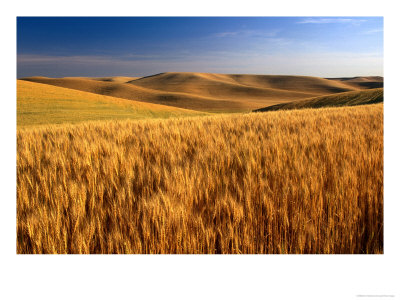 |
|
Back |
|
Kamut.
 Kamut is an ancient relative of modern durum wheat. This grain dates back thousands of years and was used by the egyptians. Different versions of the story have been told but basically these grains were discovered in Egytian temples shortly after the second world war. 36 grains were brought back to America and 32 of the grains sprouted. After hundreds if not thousands of years an ancient, superior, life giving crop had been revived.  Nutritionally superior, it can be substituted for common wheat with great success. Kamut has a rich, buttery flavor, and is easily digested by people who are senstive to wheat because it only contains trace amounts of gluten. Even people with coliec disease can properly digest this grain. Kamut is considered a "high energy grain." Athletes, people with busy lives and anyone looking for quality nutrition will find Kamut brand products a valuable addition to their diet. A bowl of hot Kamut cereal in the morning, or a delicious serving of Kamut pasta at noon will satisfy between meal hunger pangs as well as urges for snacking. Now Let me show you how to prepare this Ancient power house for maximal nutrient absorbstion. The Timing is Critical!
Resourses: Stallknecht, G.F., K.M. Gilbertson, and J.E. Ramey. 1996. Alternate wheat cereals as food grains: Einkorn emmer, spelt, kamut, and triticale. p. 156–170. |